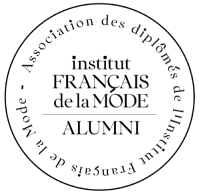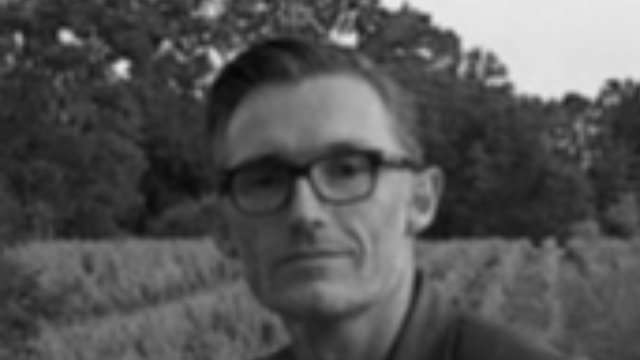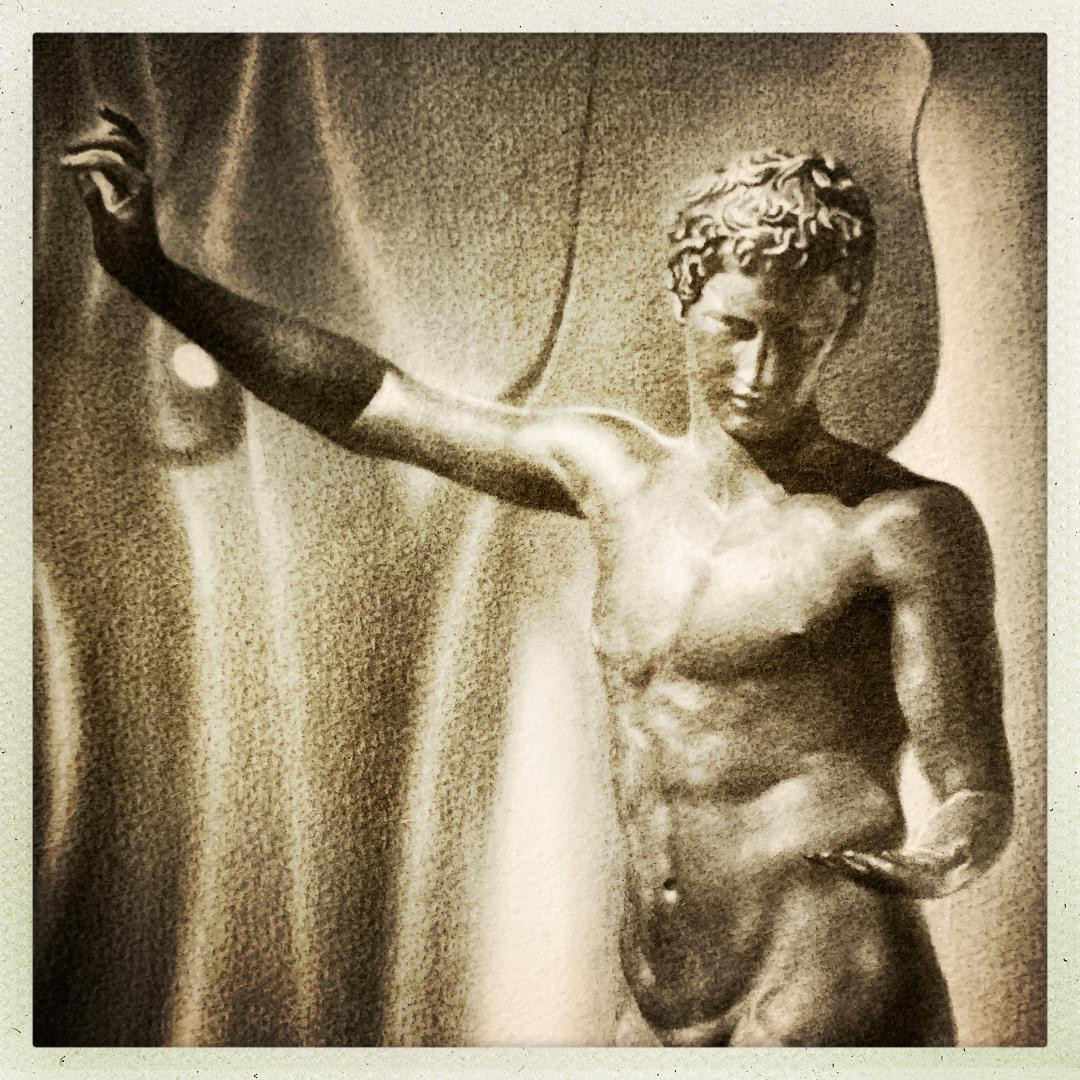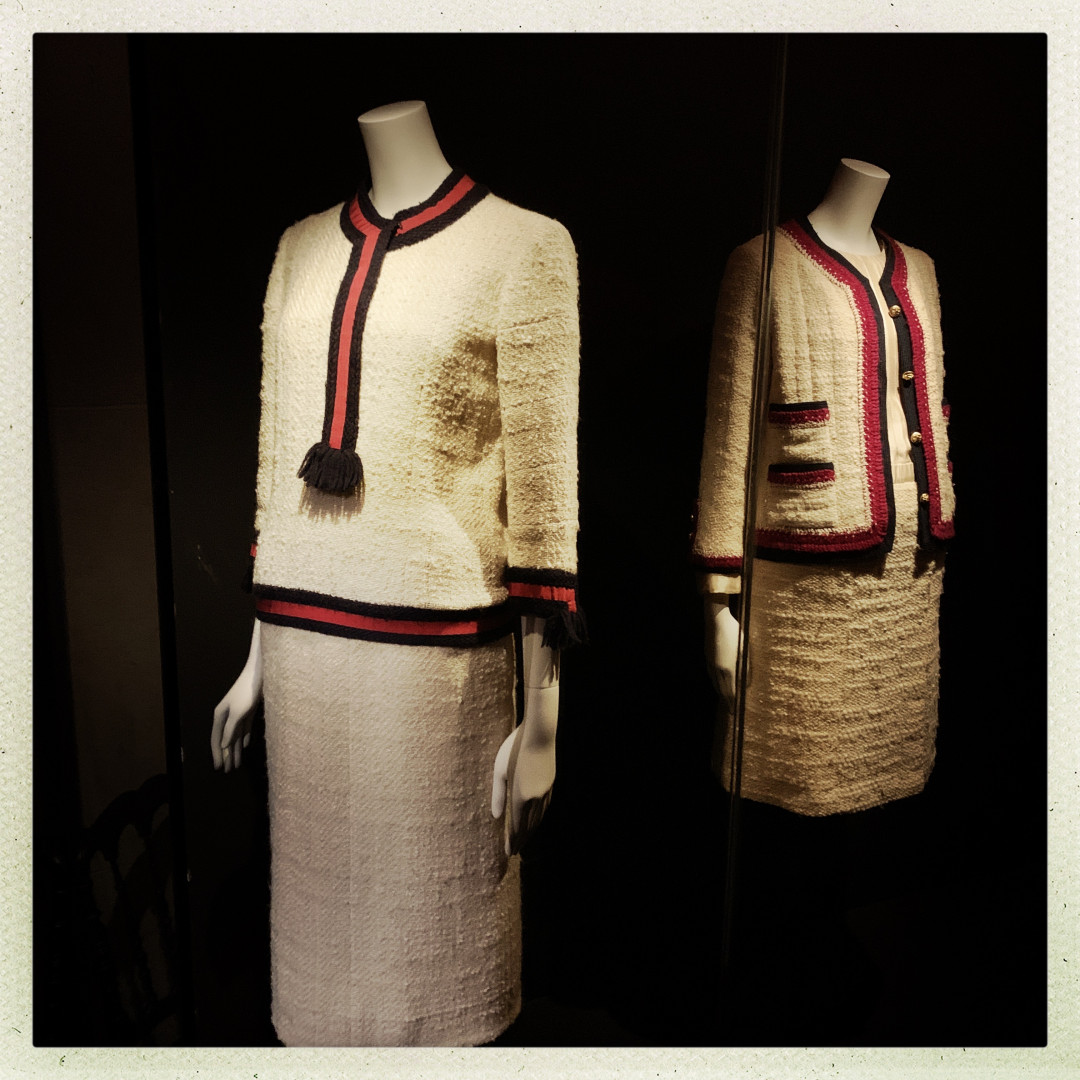Dear alumni,
We are pleased to share with you the interview of one of our alumni, Frédéric Walter, currently "Creative Marketing Director" at Givaudan.
Interviewed for the IFM alumni Perfume and Cosmetics Pole by Béatrice Ferrié, Frédéric shares with us his experience and gives us his vision of the future.
Frédéric Walter (IFM Management) graduated from L’Ecole Supérieure des Sciences Economiques et Commerciales in 1993. He then joined the Master of Management from the Institut Français de la Mode from which he graduated in 1994.
After his beginnings in the fragrance industry on the consumer side in the marketing department of L'Oréal, he joined the Givaudan group on the supplier side, where he quickly progressed in different roles until today, as Creative Marketing Director.
Frédéric has also been teaching at the IFM to the MSC Luxury and Management students for the past fifteen years, focusing on the fragrances thematic.
Before sharing Frédéric's interview with you, we would like to warmly thank him for his availability and generosity in sharing his experience. Thank you Frédéric!
Frédéric, what is your favorite fragrance raw material and why?
The patchouli because this raw material has a very mysterious side. It is woody, green and earthy at the same time. It is a deep raw material, which sparkles in the night. It has always fascinated me even before I knew its sulfurous history. Indeed, patchouli arrived in Europe at the end of the 18th century thanks to the cashmere shawls. The Indians used to soak in them with patchouli because its smell repels moths. These shawls were extremely appreciated by the "elegant class" at that time and especially by the "women of bad life". They were wearing them to protect themselves from the cold and be able to unveil quickly their attributes. That’s how in Europe patchouli became quickly associated with freedom. Then, in the 60s and 70s, patchouli was associated with the "flower power" trend. Young people traveling to and from India were often smelling patchouli. It thus became the symbol of a new liberation. What I like about this material is really both its smell and the very sulfurous universe with which it has been associated.
Which program did you do at IFM and why?
I did the Management program in 1994. At that time, there was only one management program. It was, I think, the 4th or 5th promotion (IFM was born in the 90s if I'm not mistaken). We were based rue Jean Goujon in Paris in a small mansion. There were twenty or thirty of us in each class, far away from what the school is today. And when you see how important the IFM became these last years, it's quite fascinating.
Before joining the IFM, I had completed the ESSEC and had started a first professional experience at Colgate on a deodorant brand. At that time, we were in the middle of the Gulf War and despite a difficult context to find work, I had found this first job. After six months, I left Colgate overnight because I didn't feel happy in this job. I did the IFM right after, joining the 1994 students at the very last minute. It was kind of a therapy for me because my experience at Colgate had really put me down. Leaving Colgate and start the IFM was the best possible decision I made. I had a wonderful year at IFM. It was definitely my favorite year of all my school years. I have always loved fashion and this training year has been fantastic. At the end of the year, I was immediately recruited by l ‘Oréal.
What link do you have with fashion and design now?
I really like fashion sociology, fashion images and fashion in general. Beyond an Art, I think that fashion is a sociological tool which is an excellent mind sensor of the time. A good creator is a creator who is able to well synthesize the spirit of the time and put it into shape. Today, I think that Balenciaga and Gucci brands are very good at doing it. The two creators at the head of these brands, Demna Gvasalia and Alessandro Michele really know how to translate what the era is while revisiting the codes of their brand. Gucci, by exploring the notion of gender and "gender fluidity", the affirmation of identities whatever they be and questioning the notion of Beauty; Balenciaga, by exploring in a more darker way, more political too, the frightening context of globalization, the over consumption society, the climatic and societal tensions of our time. I'm less of a fashion consumer today than I used to be, but I find these two brands really interesting as regards to what they have to say today. I think that fashion is unique because it has the capacity to synthesize and translate into clothes what an era can be, its anxieties, its aspirations, its tensions.
What values do you sponsor in your work as a creator? And as a writer since you wrote the book "Extraits de Parfums" in 2003?
This book is more of an anthology. I did a «DJ job» mixing different writings on the subject as I am an avid reader and love literature. The idea came to me when I was key account at Quest (now Givaudan). At that time, I realized that the vocabulary used to talk about fragrances by the majority of people was quite limited (it's cool, it's sweet, it's powerful). Indeed, unless you are in the profession and being able to name each ingredient by its molecule (it has an aldehyde facet, the indole side is too present …), it is very difficult to speak of fragrances precisely. Without technical training, the common vocabulary cannot be descriptive enough. There are very few specific words describing a smell in common language. Based on this, I began to collect philosophical and literary texts. I then suggested to write a book on the subject to Bruno Rémaury, who was in charge of the IFM / Publishing division at that time. It is available at the IFM library today. This book explains why there is an absence of olfactory language in Western civilizations; why the olfactory sense has long been despised, especially since the era of "enlightenment", when sight was the most valued sense. Smell and touch are relegated to the background at that time, because they are perceived as animal senses and because enhancing them would have put forward the animality of the human being. Hearing and sight were valued because they were seen as more noble. With that book, I therefore wanted to transmit some knowledge. Because transmitting knowledge is of great importance to me and I value transmission very much.
Speaking of transmission, as an IFM teacher for the MSC Luxury and Management programs, what is your vision of education and training for the youngest?
In the fragrance industry, it is really interesting because when you work for a supplier, you realize very quickly that your clients, most of the time marketers, are not always very well trained olfactorywise. They are responsible of the products development but it is often difficult for them to correctly explain what they want because they do not have the vocabulary, they do not always know how it is working on the supplier side. In fact, the idea of teaching at the IFM came to me about twenty years ago. At that time, I was taking part of a jury of end-of-year student works on the theme of perfume. There was always a good marketing analysis in the students works, but nothing on the olfactory side. The students spoke extremely well about the concept, the brand or the packaging but were unable to describe the smell of the product. There was no olfactory dimension. I was told that the reason was because they did not have any lessons on that. I therefore offered to do some. The profession of «nose» being related to the world of fashion, it was logical that such a course be done at the IFM. Also because many IFM students work in the fragrance industry after. That is how I started the program 20 years ago. From a 15 hours course we are now up to a 30 hours course which I also teach in the MSC Luxury program. Students are so different one from each others. Indeed, MSC Luxury gather students of about twenty different nationalities, with very diverse backgrounds. And it is very interesting to see the students share their olfactory descriptions with each other because the words that they use are often very different depending on their culture. I ask them to explain to me either their olfactory itinerary (the fragrances from their childhood, then from their adolescence until today), or to describe the fragrance they wear today to someone that they do not know. It is touching to see how they appropriate themselves the fragrance and especially how they master current communication techniques to be able to talk about it. And I often meet some alumni who tell me that they have chosen to work in the world of fragrances thanks to this course because it has inspired them a lot. Nothing makes me happier: that is really what I wanted. Share my passion for perfume and pass it on to the students.
Do you use the IFM alumni community for advice, networking or sharing??
Honestly no because I did not need it yet. But I am very keen in doing what I do for the IFM currently as a student teacher.
And if I need consultants for Givaudan as for example on issues of creativity and sustainable development, I will look within the IFM if some experts can help me. This is how I use the IFM network. It is a resource of knowledge and possible consultants for issues that may be encountered at Givaudan.
Do you have any advice to share with the community?
I think it is very important to share a community of values. I will be much more comfortable during an interview with someone who has done the IFM, someone who has appreciated its journey at the school and its values, like me.
And do you have more personal TIPS on your daily sources of inspiration and your way of recharging your batteries?
I really like contemporary art. Going to see contemporary art exhibitions is a way for me to clear my mind. I see a lot of them. Nothing touches me more than a well-designed exhibition where I feel both the intelligence and the expertise, the artists know-how. I am still quite fascinated by the human genius, its ability to invent new things, to create. It makes me happy and refreshes me.
I am thinking of the last exhibition that I saw before the October lockdown in Saint Etienne. It was an exhibition of Robert Morris work who is one of the master of minimalism. He is not a very well known artist in France. A pity as he made monumental creations. The museum of Saint Etienne is a museum very specialized in contemporary art. For this exhibition they reactivated ten gigantic pieces of Robert Morris. I only knew his work through catalogs and seeing them for real was fascinating. A set of huge mirror cubes, installations of felt wood, minimalist and gigantic at the same time, generating a lot of emotions: a unique physical and plastic experience.
I am also thinking of the Chanel exhibition which will still be going on in 2021. I was able to see it just before the lock-down. It is very technical and focuses on clothing. The house of Chanel has chosen to highlight the creativity and the visionary genius of its creator by passing quickly on her private life. This exhibition really allows you to see how much she was «avant-garde» and revolutionary. Some models from the 1930s are deliriously modern. It is very beautiful, very well made and very well preserved. Some chiffon dresses are still in incredible condition even though they date from the thirties. Perhaps they have been redone because they are so magnificent.
Finally, in the current economic context with the COVID, what is your vision for the future ...?
I am naturally quite optimistic. I think that the crisis will accelerate what was latent. We are going to dematerialize more, have more remote meetings and teleworking will be integrated into normal ways of working. It will be good for everyone: the company, the planet and the employees. Unfortunately, economically speaking it will be hard for many people. The crisis is going to really put a stop to the precarious professions not having the resources to survive it ... It's a shame. This crisis is an accelerator, a catalyst. It is a kind of economic Darwinism machine: things that were supposed to disappear will disappear even faster; and those that were to appear, too.
Photos:
1 - Frédéric at the Louvre Museum in Abu Dhabi
2 - Alex Yun Yao
3 - Edi Dubien Lyon
4- Robert Morris Mirror Cubes
5- Chanel Galliera
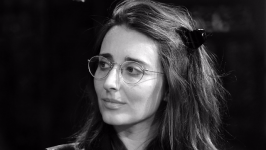
Image gallery4
Comments0
Please log in to see or add a comment
Suggested Articles
